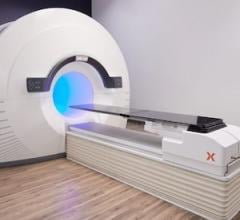September 26, 2007 — Radiation oncologists and urologists at the Kimmel Cancer Center at Jefferson and Thomas Jefferson University Hospital in Philadelphia have begun using a real-time system to implant radiation-emitting seeds in prostate cancer patients.
While the system, made by Nucletron, is only being used for imaging and planning purposes so far, it may ultimately help with the actual placement of the seeds.
The multidisciplinary team of urologists, surgeons, radiation oncologists, radiation physicists and others involved in using the device are hoping that the new federal FDA approved technology will make an already good system even better, adding scientific precision to a treatment that currently relies mainly on physician experience and skill.
In brachytherapy, tiny pellets or seeds, about the size of a grain of rice blanket the prostate, giving off radiation that travels only a few millimeters to kill nearby cancer cells. The seeds are carefully placed inside the cancerous tissue and positioned to efficiently attack the cancer.
Because the device enables real-time planning in the operating room, Adam Dicker, M.D. Ph.D., professor of radiation oncology at Jefferson Medical College says, "If an area is under-dosed, you can find out right away and make corrections." The system provides a multidimensional view of the prostate and the "ability to process and accumulate more precise information, constantly updating and readjusting the treatment plan."
For more information: www.nucletron.com


 January 13, 2026
January 13, 2026 








